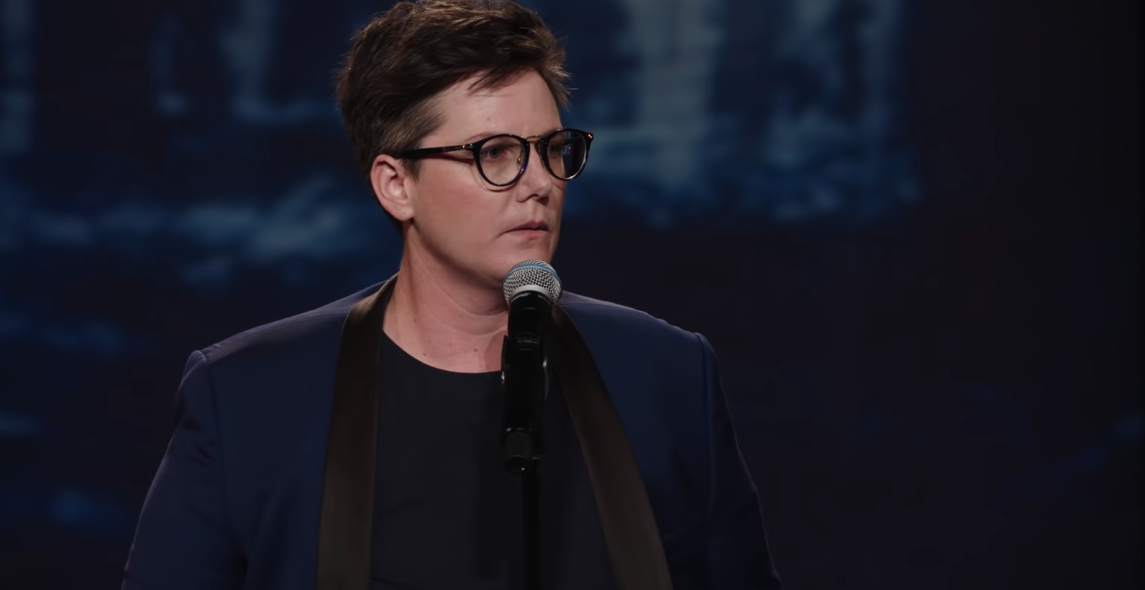Stand-up comedy is in a weird place right now. In a post-#MeToo era, it’s hard to laugh at anyone’s material — with so many of the industry’s biggest names having been revealed as abusers and predators, we hesitate to get invested in a comedian without knowing if they have skeletons in their closet.
In comes Hannah Gadsby’s special Nanette, released quietly on Netflix June 19. The show commences like many others, with Gadsby introducing herself and how her identity influences the next hour or so of jokes. She shares she is a lesbian who grew up in ultra-conservative Tasmania, a place she felt she had no choice but to leave given her sexuality and gender expression.
Gadsby clearly has a solid, creative grasp over traditional stand-up — her jokes are clever and her delivery and timing are quick and precise, as she seamlessly weaves observations into witty, self-deprecating humor. She talks about things that matter to her, like “lesbian content,” her coming out story and the difficulties of being a gay woman in a male-dominated industry. It’s not simply good comedy; it’s a refreshing viewpoint from someone who is a minority among comedians.
The lighthearted nature gradually begins to take on a more serious tone. Gadsby begins to highlight the ways in which she feels using herself as the butt of her jokes for so many years has damaged her sense of self and development as a person. Then, she makes an announcement that is somewhat shocking given the context — she is quitting comedy for good, for her own sake.
In the same way that Gadsby is able to provide a smooth, well-thought-out comedic routine, she presents her argument for why comedy has made her feel that she has had to sacrifice her humanity to give laughs.
“Do you understand what self-deprecation means when it comes from somebody who already exists in the margins? It’s not humility, it’s humiliation,” she says.
Lines like this are so gut-wrenchingly poignant that you find yourself completely engrossed — almost entranced. You’ll start asking whether this is even a stand-up show anymore.
Gadsby spends the latter half of the special with a new intensity, unflinchingly discussing past traumas, linking them to her comedy and outlining the ways in which the two have worked together to damage her perception of self.
She talks about her issues with the structure of stories for comedy. We want the beginning and the middle, but we never want to hear the end, something she feels has exploited her experiences and reduced her to a punchline, never getting a conclusion that gives her justice.
This special feels like the perfect response to all the turmoil that so many female actresses, comedians and regular human beings have had to deal with in the past year. It’s an unapologetic, fiery declaration of anger and frustration.
By the end of my first watch, I was gutted. I had never finished a comedy special sobbing, for Hannah, for other “not-normals” (as she likes to put it) and for so many others who have had to face the injustices outlined within the show. It’s uncomfortable to watch, and it’s prompted many difficult discussions since its release. Nanette makes you question yourself, as all good art should.
The sheer amount of emotion, heart, thought and pain that went into the careful crafting of this piece of work should not go overlooked. Hannah Gadsby’s willingness to insert a much-needed voice into the conversation and provide an example of a comedian who is not only openly vulnerable but trustworthy is exactly what the comedy world needs right now.
While this program was unfamiliar, and a bit shocking to some stand-up fans due to its straying from traditional comedic format, its widespread acclaim and success has set a precedent for more creative freedom in stand-up comedy and will hopefully inspire more works that will continue to bring change in an industry where it is long overdue. Nanette is one of the most important pieces of stand-up work to be made in recent years, and I, for one, cannot wait to see its impact.




